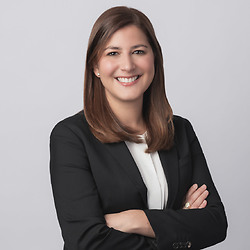Replacement Professional Liability Policy Sufficiently “Similar” to Original Policy to Prevent Application of Extended Reporting Period
Applying Indiana law, the United States District Court for the Northern District of Indiana has held that a policy which insures the same pool of risk and offers professional liability coverage for the insured law firm for professional acts provides “similar coverage” as that term is used in the firm’s previous professional liability policy despite the fact that the later policy contained an additional exclusion. Levy & Dubovich, v. Travelers Cas. & Surety Co. of Am., 2016 WL 1244018 (N.D. Ind. Mar. 30, 2016). In light of that conclusion, the court further held that the Automatic Extended Reporting Period (AERP) under the previous policy terminated when the law firm purchased the subsequent policy.
The insured law firm filed a collection action to recover fees allegedly owed to it. A few days later, the law firm’s professional liability insurer declined to renew its policy. However, that policy provided for an AERP to take effect, in certain circumstances, at the termination of the policy period. Under the terms of the policy, the AERP would terminate either 60 days after cancellation or non-renewal or the date on which another policy “provid[ing] similar coverage for Professional Services” takes effect, whichever is the earlier date. Following notice from its former insurer that its policy would not be renewed, the law firm purchased another professional liability policy from a different insurer, which contained an exclusion for any suits arising out of or related to claims for fees brought by the firm. The former policy did not contain such an exclusion. After the effective date of the second policy, but before the AERP would have expired under the 60-day provision, the client against whom the law firm had brought its collection action brought a counterclaim for legal malpractice. The law firm tendered the counterclaim to its first insurer, which denied coverage on the grounds that the claim was not made during the policy period or made and reported to the insurer during any applicable AERP because the AERP terminated upon the effective date of the subsequent policy. The law firm and several individual attorneys then filed the instant declaratory judgment action.
On cross-motions for summary judgment, the sole issue before the court was whether the subsequent policy, which excludes coverage for fee disputes, provides “similar” professional liability coverage under the terms of the first policy. In granting the insurer’s motion for summary judgment, the court held that the second policy provided “similar coverage” as that term is used under the first policy, concluding that both policies insured the same pool of risk and provided professional liability coverage for the law firm for professional acts. In so holding, the court construed the word “similar” to require that the second policy have characteristics in common with the original policy, but not that it be “identical” in terms of its terms, conditions and exclusions. Thus, the court determined that the AERP terminated when the law firm obtained the second policy, and the first insurer had no duty to defend or indemnify the law firm for the counterclaim because notice of the counterclaim was provided outside the policy period.


